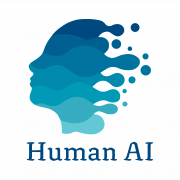“While the rate of progress in artificial intelligence has been uneven and unpredictable, there have been significant advances since the beginning of the field sixty years ago. At the time it was a mainly academic area of study, but 21st century AI allows for a constellation of conventional technologies that are having a substantial impact on everyday life. Computer vision and artificial intelligence planning, for example, are driving the video games that are now a bigger entertainment industry than Hollywood.
Deep learning, a form of automatic learning based on layered representations of variables called neural networks, has led to speech understanding being applied to our phones and kitchens, and its algorithms can be widely used in a variety of applications that rely on pattern recognition. Natural language processing (NLP) and knowledge representation and reasoning have enabled a machine (Watson) to beat the Jeopardy champion and are bringing a new power to web searches”. (Standford’s AI100 Executive Summary Study)
If you want to know and go deeper into the evolution of AI, Stanford has a specialized center that publishes rigorous reports every 4 years on the state and projections for the future, as well as on the impact on people and society. One hundred year study on artificial intelligence (AI100)
In the educational field (throughout life), both UNESCO and the OECD are being proactive in promoting AI for development and equal opportunities in the world.
Currently, each country is trying to develop a specific strategic framework for these technologies with a high transversal impact.
AI is now an everyday reality, let’s put it at our service!
With “Solid Evidence on Soft Skills” , Heckman (Nobel Prize 2000) and Kautz demonstrated that personality traits predict and cause results. Today, science has shown that personality is a critical factor for multiple life milestones, that it is as important as cognitive skills or technical knowledge (or even more), and, that it is modifiable. Within the personality models, the OCEAN is the only one on which there is a worldwide scientific consensus and therefore, it is used in the fields: educational, labor and therapeutic and it is linked to the social-emotional competences (wrongly called “soft”).
The latest advances in linguistic psychology allow the prediction of personality from textual information from the novel approach of open vocabulary. Combined with the speed and precision of artificial intelligence analysis, they make what for some might seem like magic, today a science applied to human development.
HumanAI allows professionals a quick and extensive analysis with AI to complement tests and direct observations.





